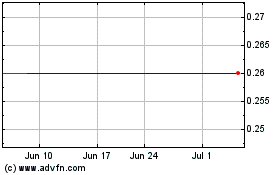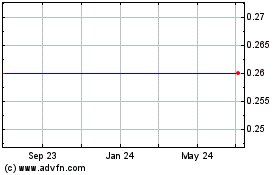UNITED STATES
SECURITIES AND EXCHANGE COMMISSION
Washington, D.C. 20549
_____________
FORM 8-K
_____________
CURRENT REPORT
Pursuant to Section 13 or 15(d) of The
Securities Exchange Act of 1934
Date of Report (Date of earliest event
reported): May 8, 2015
_____________
LIFE PARTNERS HOLDINGS, INC.
(Exact name of registrant as specified in
its charter)
| Texas |
0-7900 |
74-2962475 |
|
(State or other jurisdiction
of incorporation) |
(Commission
File Number) |
(IRS Employer
Identification No.) |
|
204 Woodhew
Waco, Texas |
76712 |
| (Address of principal executive offices) |
(Zip Code) |
Registrant’s telephone number, including
area code: (254) 751-7797
___________________
Check the appropriate box below if the Form 8-K filing is intended
to simultaneously satisfy the filing obligation of the registrant under any of the following provisions (see General Instruction
A.2 below):
| o | Written communications pursuant to Rule 425 under the Securities Act (17 CFR 230.425) |
| o | Soliciting material pursuant to Rule 14a-12 under the Exchange Act (17 CFR 240.14a-12) |
| ¨ | Pre-commencement communications pursuant to Rule 14d-2(b) under the Exchange Act (17 CFR 240.14d-2(b)) |
| ¨ | Pre-commencement communications pursuant to Rule 13e-4(c) under the Exchange Act (17 CFR 240.13e-4(c)) |
| Item 7.01 | Regulation FD Disclosure. |
On May 12, 2015, the Chapter 11 Trustee of Life Partners Holdings,
Inc., H. Thomas Moran II (the “Trustee”), released the statement set forth on Exhibit 99.1 regarding the Supreme
Court of Texas Decision in Life Partners, Inc. v. Arnold and Life Partners Holdings, Inc. v. State of Texas, which is incorporated
by reference herein.
Limitation on Incorporation by Reference:
In accordance with general instruction B.2
of Form 8-K, the information in this Item 7.01 is hereby furnished and shall not be deemed “filed” for the purposes
of Section 18 of the Securities Exchange Act of 1934, or otherwise subject to the liability of that section.
On Friday, May 8, 2015, the Supreme Court of Texas issued its
opinion in No. 14-0122, Life Partners, Inc. v. Arnold and No. 14-0226, Life Partners Holdings, Inc. v. State of Texas,
a material summary of which is contained in the statement attached as Exhibit 99.1 and incorporated by reference herein.
| Item 9.01 | Financial Statements and Exhibits. |
| 99.1 | Statement on Supreme Court of Texas Decision |
SIGNATURE
Pursuant to the requirements of the Securities
Exchange Act of 1934, the registrant has duly caused this report to be signed on its behalf by the undersigned hereunto duly authorized.
| |
LIFE PARTNERS HOLDINGS, INC. |
| |
|
|
| |
|
|
| Date: May 12, 2015 |
By: |
/s/ Colette Pieper |
|
| |
|
Colette Pieper |
| |
|
President and Chief Executive Officer |
INDEX TO EXHIBITS
| Item |
Exhibit
|
|
| 99.1 |
Statement on Supreme Court of Texas Decision
|
|
Exhibit 99.1
Statement
Regarding Supreme Court of Texas
Decision
in Life Partners, Inc. v. Arnold and
Life
Partners Holdings, Inc. v. State of Texas
On Friday, May 8, 2015,
the Supreme Court of Texas issued its opinion in No. 14-0122, Life Partners, Inc. v. Arnold and No. 14-0226, Life Partners
Holdings, Inc. v. State of Texas. These two cases had been consolidated for purposes of oral argument because they presented
the same legal question: whether the life settlement agreements sold by Life Partners Holdings, Inc. and Life Partners, Inc. (collectively
“Life Partners”) are “securities” for purposes of the Texas Securities Act (the “Act”).
In Life Partners,
Inc. v. Arnold, the plaintiffs brought a putative class action seeking rescission and damages based on the argument that Life
Partners, Inc. and others1 violated the Act by selling
unregistered securities and misrepresenting to purchasers that they were not securities. In Life Partners Holdings, Inc. v.
State of Texas, the State sought injunctive and other relief based on the allegation that Life Partners, Inc., Life Partners
Holdings, Inc. and others2 were committing fraud in
the sale of securities.
Thus, in both cases,
the issue was whether the life settlement contracts sold by Life Partners and the other defendants are “securities”
for purposes of the Act. Specifically, both sets of plaintiffs argued that the life settlement contracts are “investment
contracts,” as that term is defined in the Act.
The Texas Supreme Court
concluded that the life settlement contracts are “investment contracts,” by applying a four-part test derived from
federal securities law. The Court held
we conclude that an “investment
contract” for purposes of the Texas Securities Act means (1) a contract, transaction, or scheme through which a person pays
money (2) to participate in a common venture or enterprise (3) with the expectation of receiving profits, (4) under circumstances
in which the failure or success of the enterprise, and thus the person’s realization of the expected profits, is at least
predominately due to the entrepreneurial or managerial, rather than merely ministerial or clerical, efforts of others, regardless
of whether those efforts are made before or after the transaction.
1
The “others” include Milkie/Ferguson Investment, Inc.
2 The “others” include Brian D. Pardo, R. Scott Peden, Advance Trust & Life
Escrow Services, L.T.A., and Purchase Escrow Services, LLC.
Because there was no dispute about the
first three parts of the test, the Court’s analysis focused on whether the realization of expected profits is predominantly
due to the entrepreneurial or managerial efforts of others.
The Court found that
Life Partners engaged in substantial pre-transaction efforts that affected the realization of expected profits. These efforts include
identifying the insureds from whom life insurance policies are purchased, evaluating the health of the insured and determining
a life expectancy, evaluating the terms of the life insurance policies, and negotiating the purchase price from the life insurance
policies. The Court also found that Life Partners’ post-transaction conduct was managerial, not merely ministerial, and that
after the purchase, Life Partners exercises complete control and discretion over the investment and the investment’s success.
These efforts include holding legal title to the purchased life insurance policies, monitoring the health of the insured, monitoring
the payment of the premiums for the policies, and collecting and distributing funds. The Court also found it significant that Life
Partners had discretion to optimize premiums, and is the only party that may cash out the policy.
The Texas Supreme Court
also declined to hold that its ruling should apply only prospectively. The Court reasoned that the decision did not establish a
new principle of law because it simply applied the Texas Securities Act, which was enacted in 1957. The Court also noted that since
1977, Texas courts have been instructed to broadly construe the term “investment contract.”
The Supreme Court of
Texas therefore affirmed the court of appeals’ judgments in each case that the life settlement contracts are securities,
and remanded the cases for further proceedings in the trial courts.
(MM) (NASDAQ:LPHI)
Historical Stock Chart
From Mar 2024 to Apr 2024

(MM) (NASDAQ:LPHI)
Historical Stock Chart
From Apr 2023 to Apr 2024
